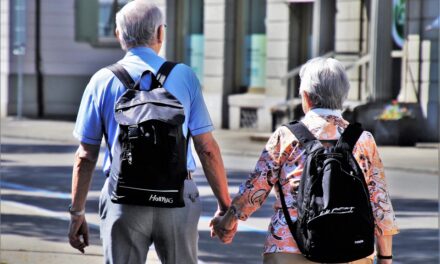 In a case of a natural disaster happened you want to have a number of supplies that you can fall back on to ensure your (and your family) survival, health, and safety. This requires collecting and maintaining a decent amount of those supplies even though you may never need them. Altogether, these supplies – including food and water stockpiles, first aid supplies, and even the most basic survival kits, can add up.
In a case of a natural disaster happened you want to have a number of supplies that you can fall back on to ensure your (and your family) survival, health, and safety. This requires collecting and maintaining a decent amount of those supplies even though you may never need them. Altogether, these supplies – including food and water stockpiles, first aid supplies, and even the most basic survival kits, can add up.
We have prepared a kind of a short guide here with the most important “things to do” before an emergency situation occurs such as in the case of an earthquake or hurricane per example.
- Do Your Research
If you are starting from scratch, do some research on emergency preparedness, checking websites such as The American Red Cross and CDC Emergency Preparedness for lists and ideas of what you need to build a survival “kit” and items to stockpile for emergencies.
You can also search your local area for survivor training and tips – in Los Angeles where I live we have the option to get free training through the LOS ANGELES FIRE DEPARTMENT – Community Emergency Response Team program (CERT), and soon we will have our own Brazilian CERT Team (CERT is a community based group of civilians that have completed a federally recognized training course detailing ways to first assist family, then if able and available to do so, help friends, neighbors, and the community in small or large scale disasters). This training is free and open to anyone over the age of 18. And for teenagers… there’s TEEN CERT!
- Make a List
Before you go out and buy everything you need, make a detailed list of what items you need for your emergency preparedness or survival kit. Break the list up into sections based on their categories such as sustenance, shelter, first aid, and more. Also have an idea of how much everything on that list costs as well. For home stockpiles, most experts recommend that you have a minimum of three days’ worth of supplies, but at least two weeks’ worth is preferred.
- Build Up to It
It is a great idea, especially if you are starting from scratch and are financially stragling , building up your survival kit as soon as possible even if it step by step. Buying all of the items you need at once might not be very budget friendly. The “must to do” is building up your survival kit as soon as possible.
To know what items to purchase first, prioritize the list you made based on items that are the most important and most useful. Based in my research and knowledge the top three are:
* Water: Having enough water stockpiled is one of the most important survival tips. Keep bottled water both in your car and your home. For your home stockpile, the best rule of thumb is to have one gallon of water per person per day.
* First Aid: A good emergency first aid kit and basic first aid knowledge is a must for sure. The American Red Cross has a detailed list of items that should be in any first aid kit. You will need to add or make changes to that list based on your family size and specific medical needs.
* Food: The most likely disaster situation involves a severe weather event where you could be stuck in your home for days or more without electricity or water. So having a decent stockpile of non-perishable foods to keep you and your family nourished is the smart way to go.
- Maintenance
Some basic maintenance will help save you money and keep your survival supplies up to date. Keep your food and water stores rotating as they come near their expiration dates. Using this tactic can be used rather than thrown out and stores kept fresh in case of emergency. Proper maintenance of any tools and other equipment will keep them from needing to be replaced, which will also save you money.
Last Words – Keep an Eye Out
Emergency preparedness is a responsible and potentially life-saving life skill, but being ready for anything isn’t always cheap. You can ensure the safety of your family and your budget with these tips. Do you like this article? Do you like to help and alert friends and family? SHARE this article.














